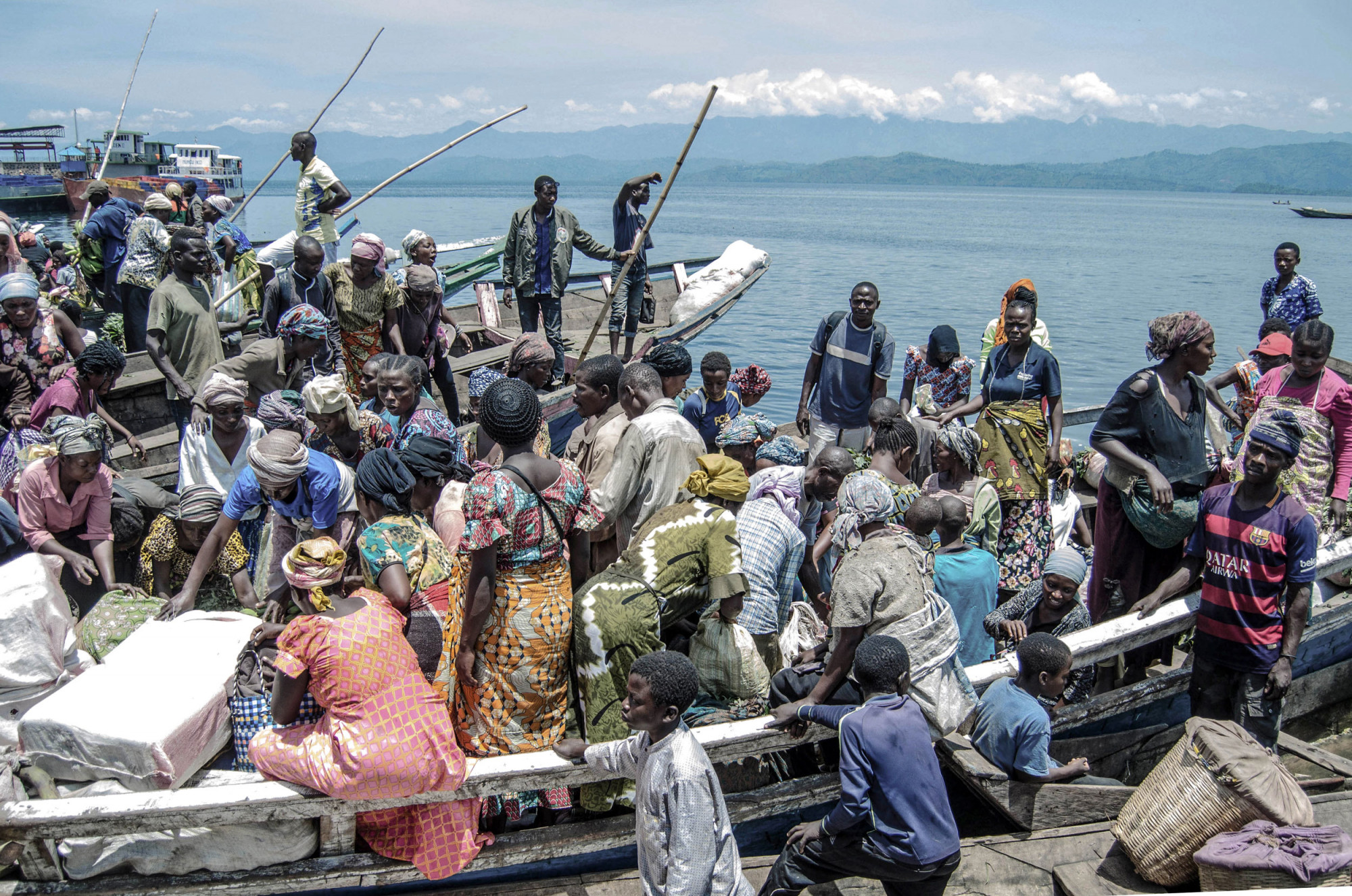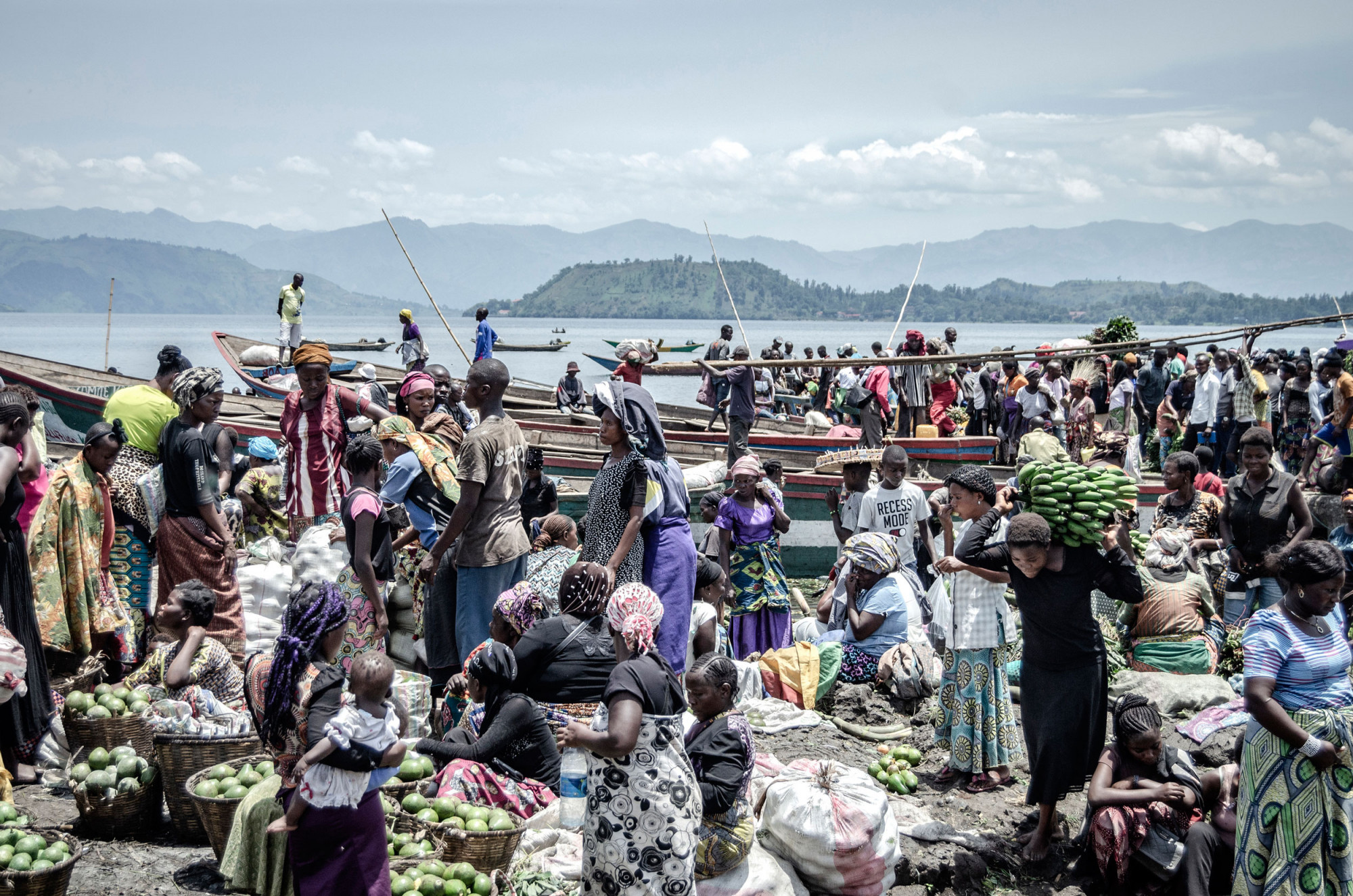

Congo has one of the highest rates of informal workers in the world, with about 80 percent of urban workers involved in the informal economy, according to the World Bank (2018). Congo’s Trade Union Confederation estimates that, nationally, the informal economy represents more than 97 percent of all workers.
I took these photos at Kituku market on the shores of Lake Kivu on April 2, the day after the first COVID-19 case was confirmed in Goma. The country had closed its borders and declared a state of emergency the week before. The capital, Kinshasa, was under confinement, and health officials were calling on all Congolese to observe social distancing.

But many people were still out conducting their daily business. Here in Congo, most of the population lives on $2 per day and has to work to survive.
At Kituku, traders bring their goods from the islands to sell here and to buy things to take back with them. Authorities had announced that the daily vendor tax of 1,200 Congolese francs ($0.70) would be suspended during the pandemic, but officials at the market still insisted that it be paid. This led to a big argument and the market women were shouting and complaining. But in the end, it was resolved and the tax was paid.
People working in the informal sector don’t have much in terms of savings, and often don’t have electricity for refrigeration. This means that people cannot buy food for more than a day or two at a time. This creates a constant demand for small-scale trade at markets like Kituku.
Even now, the market is still operating. Vendors have to wash their hands upon entering, and are supposed to respect social distancing. But for us here in Congo, respecting a meter of distance in the market is impossible. Informal trade involves close contact and cash transactions passed from hand to hand.

At the same time, informal workers lack any form of social protection and Congo’s health care system has many problems. A family member falling sick can bring financial ruin. So people are still going to markets not because they don’t care about their health, but because it is an absolute necessity.